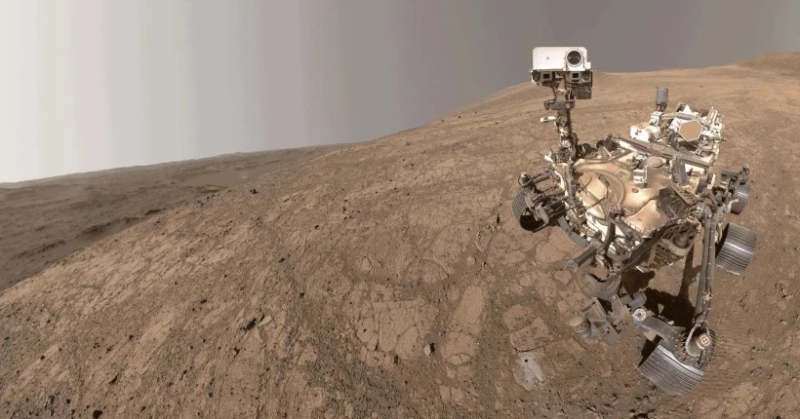- Arab-Islamic summit over Israeli strike on Doha Monday |
- NASA Rover Uncovers Strongest Hint of Ancient Life on Mars |
- Eminent Lalon singer Farida Parveen passes away |
- Dr Yunus mourns Farida Parveen's death |
- From DUCSU to JUCSU, Shibir Extends Its Winning Streak |
NASA Rover Uncovers Strongest Hint of Ancient Life on Mars

Photo: Collected
NASA’s Perseverance rover has found its most compelling evidence yet of possible ancient microbial life on Mars, after drilling into rocks from a long-dry river channel that once flowed into Jezero Crater.
The reddish, clay-rich mudstones, collected from the Bright Angel formation in Neretva Vallis, contain organic carbon along with tiny mineral specks enriched with iron phosphate and iron sulfide—compounds that on Earth often form through microbial activity.
Lead researcher Joel Hurowitz of Stony Brook University said the sample is the most promising candidate so far in the rover’s search. “One possible explanation is microbial life, but other processes could have created these features,” he cautioned.
Independent experts welcomed the discovery but stressed that non-biological explanations remain possible. Perseverance, which has been exploring the planet since 2021, cannot detect life directly and instead collects and stores samples for eventual return to Earth.
NASA initially planned to bring the samples back by the early 2030s, but rising costs have pushed the timeline into the 2040s. Until then, scientists will rely on Earth-based experiments and may explore new ways of analysing the material, including advanced equipment sent to Mars itself.

